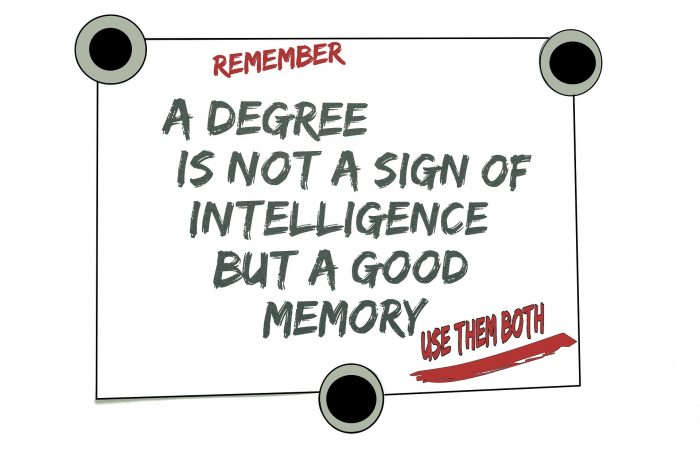
Degree noun (SUBJECT OF STUDY)
a course of study at a college or university, or the qualification given to a student after he or she has completed his or her studies:
She has a physics degree/a degree in physics from Edinburgh.
mainly US She has a bachelor’s/master’s degree in history from Yale.
UK “What degree did you do at York?” “Geography.”
Cambridge Dictionary
Een studiecyclus aan een hogeschool of universiteit, of de kwalificatie die aan een student wordt verleend nadat hij of zij zijn of haar studie heeft voltooid.
Page Description
Explore Glenn Ford’s case,
the longest-serving death row inmate exonerated,
revealing flaws in legal defense and the justice system.
1 Exonerated death row inmate dies a year after release
2 Exonerated Death Row Inmate Meets Prosecutors Who Put Him There
Back to menu IMPORTANT VIDEO: how a trial really works
Glenn Ford, the exonerated death row inmate:
Glenn Ford was born in Shreveport, Louisiana, on October 22, 1949.
In 1983, he was arrested and charged with the murder of Isadore Rozeman, a jeweler in Shreveport.
Despite weak evidence and inconsistent witness testimony, Ford was convicted of the murder and sentenced to death in 1984.
Ford maintained his innocence throughout his trial and imprisonment, and several organizations, including the Innocence Project, worked on his case.
In 2014, new evidence came to light that proved Ford’s innocence, and he was released from prison after spending almost 30 years on death row.
Ford was the longest-serving death row inmate to be exonerated and released in US history at the time.
Following his release, Ford received a settlement from the state of Louisiana for wrongful conviction and imprisonment.
Ford passed away on June 29, 2015, from lung cancer, less than two years after his release from prison.
His case brought attention to flaws in the criminal justice system, including wrongful convictions, racial bias, and inadequate legal representation for defendants facing the death penalty.
3 Louisiana Denies Compensation to Dying Exonerated Death Row Prisoner as Former Prosecutor Apologizes
http://democracynow.org – After three decades on death row in Louisiana, Glenn Ford was freed in March 2014 based on new evidence clearing him of the 1983 fatal shooting a jewelry store owner. Ford is African American and was tried by an all-white jury. In 2000, the Louisiana Supreme Court ordered an evidentiary hearing on Ford’s claim that the prosecution suppressed favorable evidence related to two brothers initially implicated in the crime. Then in 2013, an unidentified informant told prosecutors that one of the brothers had admitted to shooting and killing the jewelry store owner. Shortly after Ford’s release last year, he received a second death sentence: stage three lung cancer, which has now advanced to stage four and spread to his bones, lymph nodes and spine. His attorney says he has entered hospice care in New Orleans. Ford filed a federal lawsuit claiming prison officials and medical authorities knew he had cancer in 2011, but denied him treatment. Glenn Ford is one of the longest-serving death row prisoners ever to be exonerated. Under Louisiana law he can ask for a maximum of $330,000 in compensation. But last week a judge denied his request, saying Ford was involved in two lesser crimes. We are joined by the lead prosecutor in Ford’s murder trial, Marty Stroud, who has come out in favor of his compensation. In a three-page letter to The Shreveport Times, Stroud said he no longer supports the death penalty, and apologized to Ford. “I apologize to Glenn Ford for all the misery I have caused him and his family,” he wrote.
Watch a former prosecutor apologize for sending an innocent man to death row
4 feb. 2016
Educational
4 The Best Apology EVER?
28 mrt. 2015
5 The Innocence Project
16 dec. 2014
6 Barry Scheck & Kevin Richardson: “Innocence Project” | Talks at Google
4 okt. 2017
Co-Founder Barry Scheck speaks about The Innocence Project with Kevin Richardson, one of the men wrongly convicted in the Central Park Five case.
The Innocence Project, which is currently celebrating its 25th anniversary, was founded by acclaimed lawyers Barry Scheck and Peter Neufeld who realized that the emerging DNA evidence that was being used to identify the perpetrators of crimes could also be used to exonerate those who had been wrongly convicted. The organization began as a legal clinic at Cardozo Law School and became an independent nonprofit (still affiliated with Cardozo) in 2004. Since its founding, 351 people have been exonerated by DNA evidence of crimes for which they didn’t commit. The Innocence Project has helped in more than half of these cases.
The Innocence Project understood early on that each wrongful conviction was a learning opportunity, exposing flaws in the system that contributed to these terrible injustices. It advocates for science- and research-based reforms to prevent wrongful convictions. The organization has worked to pass more than a hundred state laws designed to reveal and protect against wrongful convictions, including laws that protect against eye witness misidentifications and false confessions, leading contributors to wrongful convictions.
Co-Founder Barry Scheck will talk about his groundbreaking work to disrupt the status quo of the criminal justice system and introduce you to a person helped by the Innocence Project who will share his story of perseverance on the long road to justice.
7 Defense Attorney Barry Scheck Talks Wrongful Conviction
Barry Scheck is a defense attorney who has worked extensively in the field of wrongful convictions. In a talk about this topic, he discusses several key points:
The prevalence of wrongful convictions: Scheck notes that there have been many cases in which innocent people have been convicted of crimes they did not commit. He cites studies that estimate the number of wrongful convictions to be between 2% and 10% of all convictions.
The causes of wrongful convictions: Scheck identifies several factors that can contribute to wrongful convictions, including eyewitness misidentification, false confessions, unreliable forensic evidence, and prosecutorial misconduct.
The importance of DNA testing: Scheck emphasizes the crucial role that DNA testing has played in exonerating many wrongfully convicted individuals. He notes that DNA testing has shown that many people who were convicted based on other types of evidence, such as eyewitness testimony, were actually innocent.
The need for criminal justice reform: Scheck argues that the high rate of wrongful convictions highlights the need for reforms to the criminal justice system. He advocates for measures such as improved forensic science standards, better training for law enforcement and prosecutors, and greater access to legal resources for defendants.
Overall, Scheck’s talk underscores the importance of addressing the problem of wrongful convictions and improving the fairness and accuracy of the criminal justice system.
8 Slashing Police Cruiser Tires Prank
16 mei 2011
